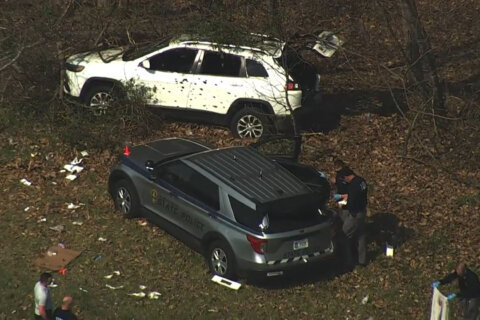WASHINGTON — A highway guardrail end-cap, changed without notice in a way that could lead to more deadly crashes, is undergoing new testing in Virginia.
Even with the changes, the ET-Plus guardrail end terminals have passed new federal testing, but the Virginia Department of Transportation says the product is not approved for the state’s roadways.
Trinity Industries made changes without telling the agency.
VDOT spokeswoman Marshall Herman says there are likely 10,000 or more of the modified end terminals on Virginia roads. There are tens of thousands more on roadways throughout the nation.
“We don’t have a full inventory of how many modified ET-Plus guardrail end terminals are out on Virginia’s roadways, but we know that they’re out there,” Herman says.
She is with a team of engineers at an independent site in California, where the first new tests were conducted on Sept. 17 and 18.
Trinity Industries says it did not need to notify VDOT or other states of what it believes were minor changes made in 2005. The company objects to its product being singled out for testing.
Trinity is appealing a $663 million finding in Texas in a related whistleblower case. In that case, the company allegedly defrauded the federal government by selling the new product without disclosing the changes. The lawsuit was brought by a competitor based in Bristol, Virginia.
The product is said to leave vehicles impaled by guardrails. Allegedly, the product doesn’t help slow down the car or peel the guardrail away from passengers where there are crashes.
The Virginia Attorney General’s Office has joined a lawsuit asking for compensation for the state if the end caps need to be replaced.
Herman says Trinity has observed some of the testing in California, along with representatives from the Federal Highway Administration. Trinity contends VDOT or VDOT contractors have failed to properly install or maintain at least some of its products.
Herman says the results of the testing — scheduled for late September and early October — will be shared with other states. At least 40 states, including Virginia, have ended plans to buy more of the product since a Texas jury ruled against the company last year.
VDOT says the new tests are simply aimed at collecting data on the product.
“Virginia is performing the crash tests for the sole purpose of trying to make sure that we do the best that we can to make Virginia’s highways as safe as possible,” Herman says.







